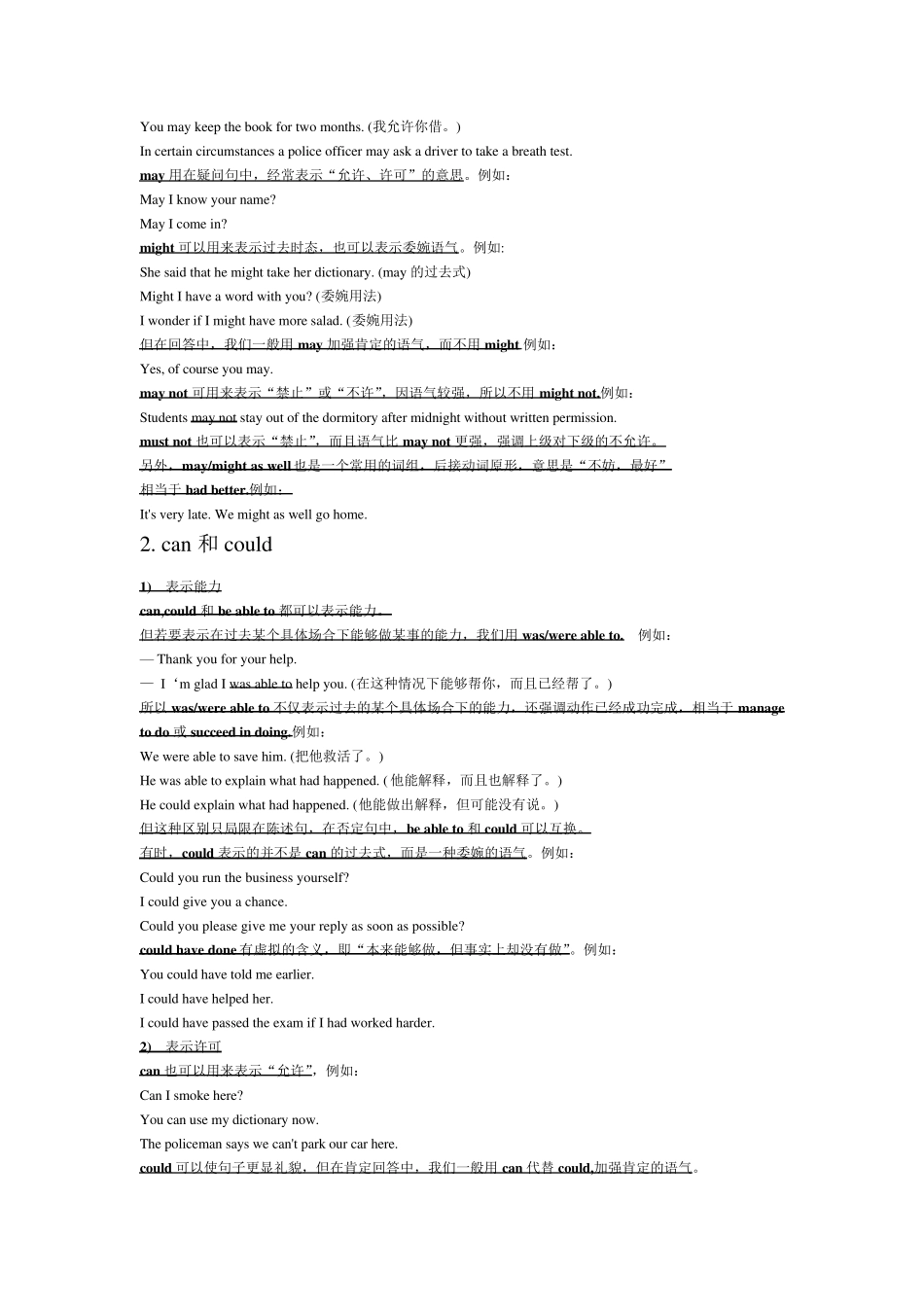Modal Verbs 在 英 语 中 , 情 态 动 词 属 于 助 动 词 。除了作简略回答外, 它们一般不能单独使用,它们必须与动 词 原形一起使用构成句子的谓语 。不同的情 态 动 词 会有不同的意义和用法。有时, 同一个情 态 动 词 在 不同的语 境中 也会产生不同的含义。下面我们将讨论这些情 态 动 词 的用法。 情态动词的推测性用法和非推测性用法 情态动词一般有两种用法:推测性用法(epistemic use) 和非推测性用法 (non-epistemic use) 。推测性用法是指做出推测,预测事物发生的可能性; 非推测性用法则指情态动词本身的基本含义,如can 表示能力,may表示许可,must 和should 表示必须和义务,need 表示需要等。例如: I can swim. (非推测性用法) This can be true. (推测性用法) You may go now. (非推测性用法) He may be ill now. (推测性用法) You must finish it before lunch time. (非推测性用法) He must be at home for he never goes out at dinner time. ( 推测性用法) 我们把英语中的9 大情态动词按其推测性和非推测性用法列表如下: 情 态 动 词 非 推 测 性 用 法 推测性用法 can/could 能力/许可(ability/permission) 可能(possibility) may/might 许可(permission) 可能(possibility) will/would 意愿(volition) 预言性(predictability) should/ought to 责任和义务(obligation) 应该是(logical necessity) must 责任和义务(obligation) 一定,肯定(logical necessity) 情态动词非推测性用法的说明 1. may和might 表示允许 may可以与不同的人称搭配,表示“许可、允许”。例如: May I know your name? You may be the first to leave if you are in a hurry. (我允许你第一个离开。) You may keep the book for two months. (我允许你借。) In certain circumstances a police officer may ask a driver to take a breath test. may用在疑问句中,经常表示“允许、许可”的意思。例如: May I know your name? May I come in? might 可以用来表示过去时态,也可以表示委婉语气。例如: She said that he might take her dictionary. (may的过去式) Might I have a word with you? (委婉用法) I wonder if I mi...


